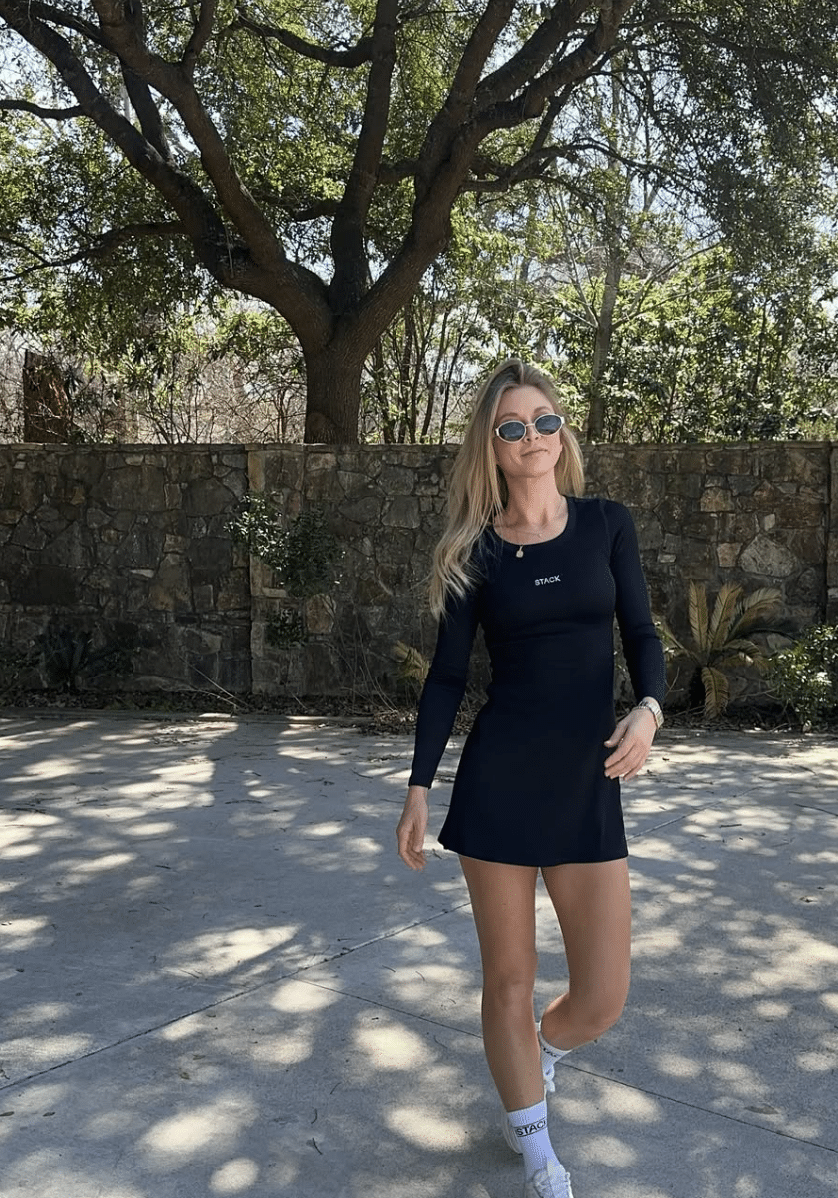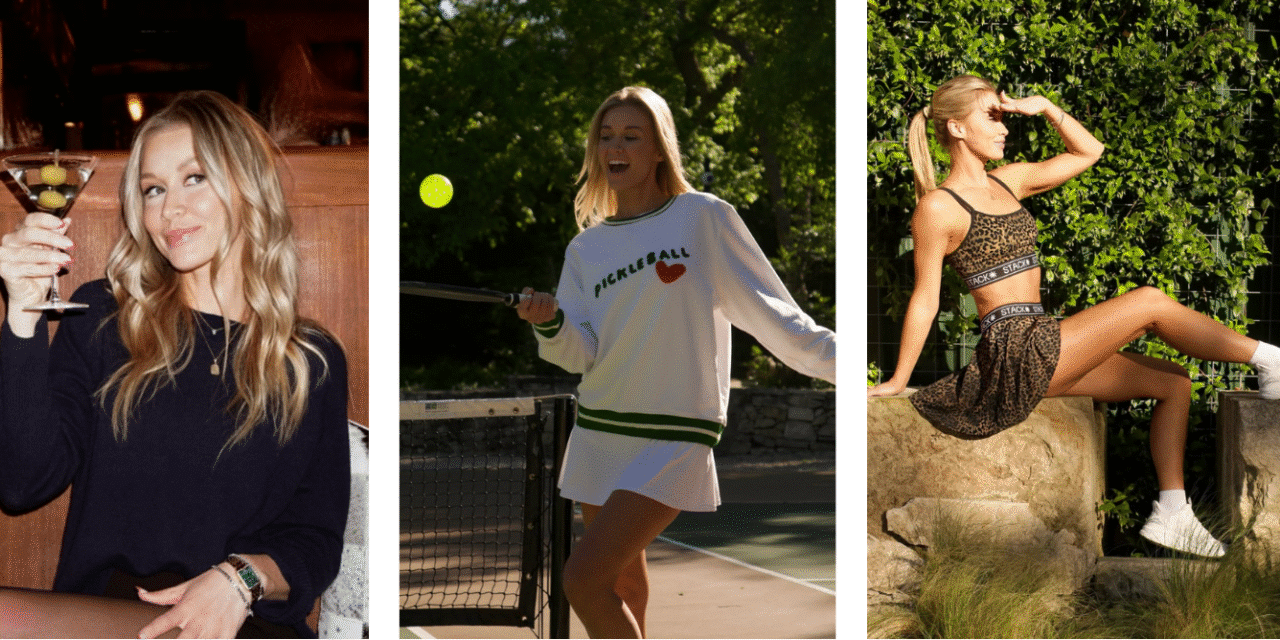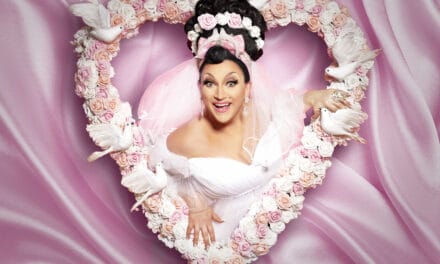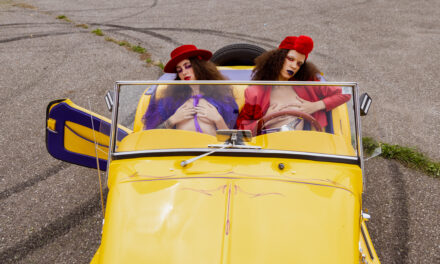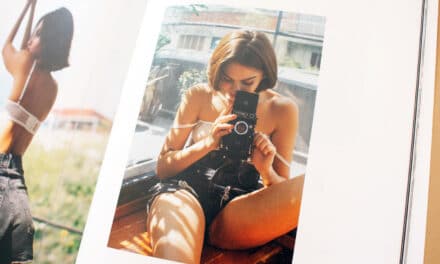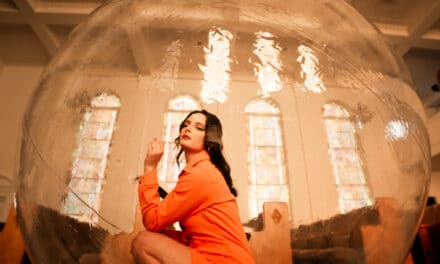Lauren May is the breakout star bringing pickleball into the cultural spotlight. A former Division I tennis player who has been competing in racquet sports since childhood, Lauren has transitioned from competitive courts to the forefront of pickleball, emerging as one of the sport’s most recognizable new faces.
Lo has built a loyal following through her competitive edge and unmistakable presence both on and off the court. She’s managed every aspect of her brand herself, from shooting content to landing brand deals, becoming the go-to creator for brands looking to tap into the next wave of sport, style, and digital influence.
Raised with a competitive spirit, Lauren is building something bigger than a following; she’s creating cultural relevance for a sport she believes in deeply. With a background in broadcast media and a passion for hosting, she’s positioned to be the face of pickleball as it breaks into the mainstream.
Lauren isn’t just part of the Pickleball movement, she’s leading it.
Socials
Q: You went from Division I tennis to becoming one of the most talked-about names in pickleball. What drew you to the sport, and when did you realize you were becoming a key figure in its rise?
A: What drew me in was the people. After stepping away from competitive tennis due to injury, I missed that energy, being part of something bigger than yourself. When I moved to Texas, I said yes to everything, and pickleball was one of those yeses. From the very first open play, I felt something different. The sport was electric, welcoming, and wildly competitive in the best way.
I realized I was becoming a part of something bigger when people started showing up to tournaments saying, “I follow you,” or “You’re the reason I started playing.” That shifted everything. I wasn’t just playing—I was helping grow the game. And that responsibility fuels me every day.
Q: Pickleball has exploded in popularity—why do you think it’s resonating with such a broad audience right now?
A: It’s the perfect storm of accessibility and adrenaline. Anyone can pick up a paddle and get in on the fun, but there’s also depth, strategy, speed, and a competitive fire that keeps people coming back. And beyond the sport itself, the community is magnetic. Whether you’re at an open play or the finals of a national tournament, the vibe is high, the energy is real, and people are all-in. That’s rare and it’s powerful.
Q: You’ve built your brand from scratch—creating content, managing partnerships, and developing a loyal following. What’s been the most rewarding (and most challenging) part of that journey?
A: The most rewarding part has been owning my voice and realizing it resonates. Women tell me I’ve helped them feel stronger, bolder, or like they finally saw someone who looked like them bringing both edge and elegance to the court. That means everything to me. I want to be living proof that femininity and ferocity can co-exist, that you can be competitive, stylish, and unapologetically ambitious all at once.
The most challenging part? Honestly, it’s building a brand while also being the brand. I’m the athlete, the marketer, the editor, the strategist, and the talent. There’s no off switch but there’s also no ceiling. And that’s the kind of pressure I’m addicted to.
Q: Your blend of sport and style sets you apart. How intentional is your approach to fashion and branding in an athletic space that’s traditionally been more understated?
A: It’s fully intentional. I’ve always believed that how you show up is part of how you perform—and for me, that means fusing aesthetic with grit. I want to rewrite the narrative that athletes have to look a certain way to be taken seriously.
My personal brand isn’t about being “a pretty girl while playing.” It’s about being powerful, polished, and bold, and not shrinking for the sake of comfort. I want girls to see my content and feel like they have permission to go harder and shine brighter. We’ve spent decades toning women down in sports. I’m here to turn the volume all the way up.
Q: What do you think it takes to stand out as a content creator in the sports world today, especially in a fast-growing niche like pickleball?
A: Authenticity, strategy, and consistency. You can’t fake real talent, real love for the game, or real storytelling. You have to live it and then translate that into content people want to engage with. That means understanding trends, owning your voice, and constantly evolving your approach. In a niche sport,
your job isn’t just to entertain, it’s to educate and elevate. That’s what builds a loyal community, not just a following.
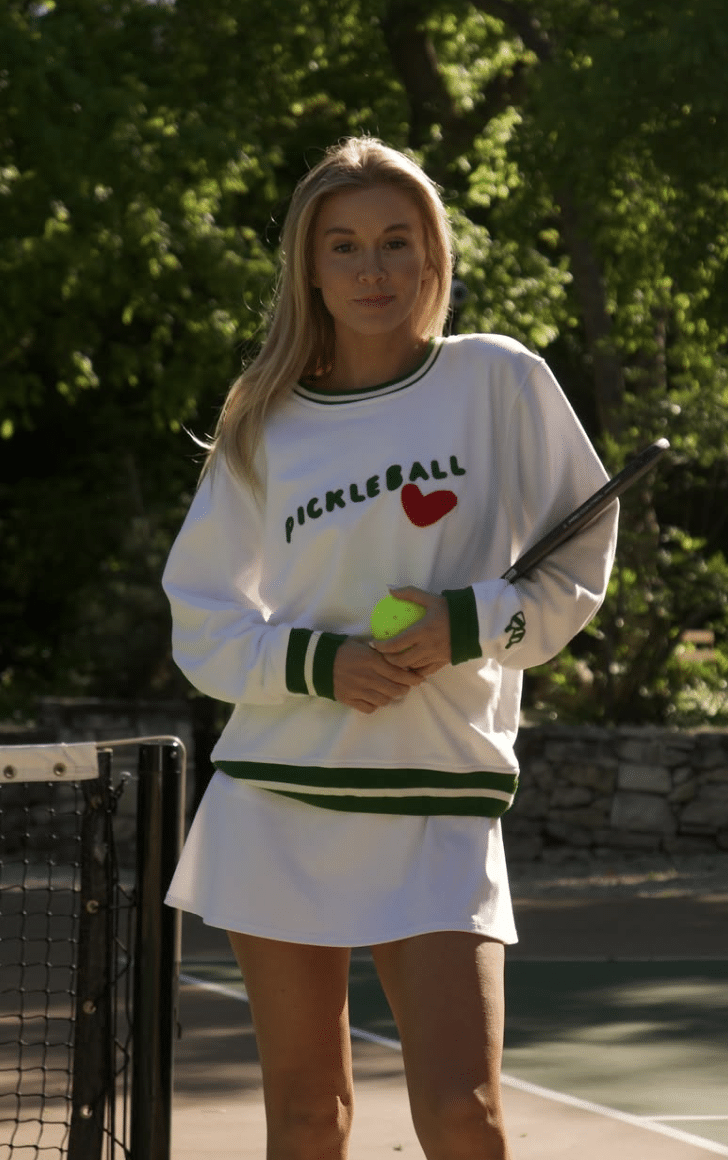
Q: You’ve hosted events, competed at high levels, and created viral content. Which of these roles do you feel most at home in—and which one pushes you the most?
A: I feel most at home when I’m competing. When I’m sweating it out on the court, locked in, chasing something. That part of me will never go away. It’s my foundation.
But all around I’m pushed, and grow, the most when I’m live. Competing in tournaments, hosting, commentating, or creating in real time… that’s where I have to show up fully. There’s no retake. It demands presence, instinct, and polish. As Billie Jean King said, “Pressure is a privilege.” And I agree, especially when you’re building something bigger than yourself.
Q: What’s your vision for the future of pickleball as it moves into the mainstream—and what role do you see yourself playing in that evolution?
A:Pickleball isn’t emerging—it’s exploding. It’s already captured the numbers, the momentum, and the athletes. What it needs now is cultural infrastructure, narratives, media, moments. That’s where I come in.
My vision is to help usher pickleball into its entertainment era. Think red carpet energy meets elite competition. I want to bring storytelling, style, and star power to the sport in a way that redefines how we view “niche” athletics. Whether it’s through content, commentary, or collaborations, I’m not just showing up to compete, I’m hoping I am helping build the future face of the game.
The question is no longer if people will watch. It’s how we’re going to make them care. And I plan to be part of the reason they do.
Q: You’ve mentioned a passion for broadcast and hosting. Where would you love to take that next? Commentating? A show? Something else entirely?
A: I want to create and host something that sits at the intersection of sport, storytelling, and culture not just covering what happens on the court, but exploring the personalities, pressure, and prep behind it. I’m not interested in traditional sidelines. I’m interested in building a space where coverage feels cinematic, bold, and deeply human.
A dream project would be a digital-first series or platform that blends match breakdowns, behind-the-scenes walkthroughs, athlete features, and cultural commentary packaged with the kind of energy and storytelling that resonates beyond the sport itself. Hosting tournaments will always be part of the picture, but long-term? I want to build something of my own. A place people tune into not just for the game but for the meaning behind it.
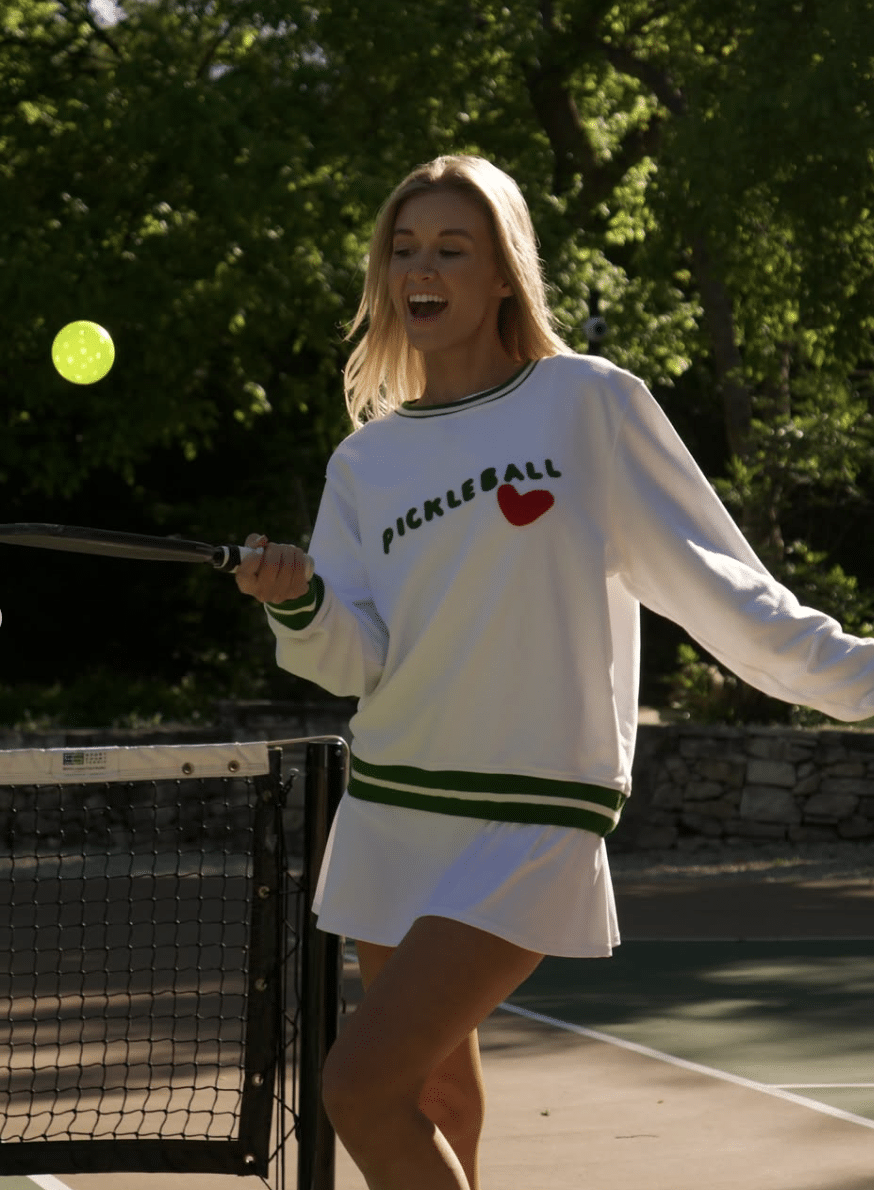
Q: You’re at the intersection of athleticism, media, and fashion. Are there any dream collaborations—whether with a brand, a network, or another athlete—you’re hoping to make happen?
A: I dream in campaigns. The kind that shifts culture and elevates the female athlete beyond the uniform. Long-term? I’d love to build out my own platform merging sport, storytelling, fashion, and femininity under one media brand. I want to be known not just for showing up in big moments but for helping create them. Sports Illustrated is at the top of my dream list not just for its legacy, but for how it’s evolving. It’s become a platform for bold, athletic women who are redefining beauty, power, and presence and that’s exactly the kind of space I want to lead in. I also would love to see myself working with brands like Chanel Sport, Miu Miu, Nike Women, Puma, and brands that understand that performance can be premium, and athleticism can be aspirational. I want to help shape campaigns where the female athlete isn’t just a feature, she’s the face.
On the media and broadcast side, I’d love to partner with Amazon Prime Sports, the Olympics, ESPNW, Vogue World, or better yet, help build something entirely new. I envision cinematic, elevated sports storytelling that treats women’s pickleball not as a niche, but as a global cultural force. And I want to be one of the women defining that evolution.
Q: For young athletes or creators looking to carve their own lane in a niche sport, what’s one piece of advice you wish you had when you were starting out?
A: Don’t wait for permission. You don’t need someone to “discover” you, you need to start documenting, sharing, and building. If you have talent, a voice, or a vision, the internet will work for you if you show up with consistency and authenticity. Own your lane, even if no one else is in it yet.
